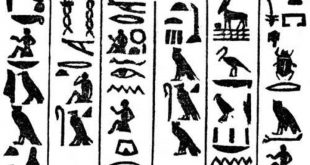[unable to retrieve full-text content]A lecture for Kadir Has University, Department of Economics, Istanbul. Image by Lynn Greyling from Pixabay The post Back from Post-Modernity: The Coming New Economic Order first appeared on Michael Hudson.
Read More »Palatial Credit: Origins of Money and Interest
Origins of Money and Interest: Palatial Credit, not Barter Neolithic and Bronze Age economies operated mainly on credit. Because of the time gap between planting and harvesting, few payments were made at the time of purchase. When Babylonians went to the local alehouse, they did not pay by carrying grain around in their pockets. They ran up a tab to be settled at harvest time on the threshing floor. The ale women who ran these “pubs” would then pay most of this grain to the...
Read More »Palatial Credit: Origins of Money and Interest
Your access to this site has been limited Your access to this service has been temporarily limited. Please try again in a few minutes. (HTTP response code 503) Reason: Exceeded the maximum global requests per minute for crawlers or humans. Important note for site admins: If you are the administrator of this website note that your access has been limited because you broke one of the Wordfence advanced blocking rules. The reason your access was limited is: "Exceeded the maximum global...
Read More »As a related matter, never say “give me all of your money” when…
As a related matter, never say “give me all of your money” when mugging an economist: “So, like, do you mean only M1 or do I need to hand over M2 as well? Are you only counting items officially recognized as currency or are you demanding all items that could function as money? Technically speaking, fiat money has no intrinsic value so is there any chance I can convince you that this is not worth your time?” You can also see the post on the original site here.
Read More »Ramen is displacing tobacco as most popular US prison currency, study finds
So the internet seems pretty much obsessed with this story right about now… The headline, taken at face value, isn’t particularly surprising to economists- we are quick to point out that a pretty wide variety of items can count as “money”, provided that they perform a few functions: A medium of exchange A unit of account A store of value By this characterization, sure, ramen could serve as money- I guess ramen packs aren’t so large as to be too cumbersome to be traded, you could quote...
Read More »The Euro is Poised for a Rise, Expect $1.50 in 2 to 4 Years
We present twelve reasons that could sustain a further euro appreciation to $1.40 or even 1.50 in the upcoming two to four years. The main one is that Germans are net global creditors and Americans net debtors. This is reflected in fiscal and monetary policy and in investors' behaviour. The post was written in December 2013, but the arguments are still valid today and will continue to be valid in the future.
Read More »Rising Sight Deposits at SNB Means Rising SNB Debt
Money creation and sight deposits may have two points of view: 1. The central bank creates money - i.e. the SNB decides to increase sight deposits when it does currency interventions 2. Commercial banks create money - inflows in CHF on Swiss bank accounts make those banks increase their "sight deposits at the SNB. If inflows in CHF are higher than outflows then CHF must rise, unless the central bank does currency interventions. We will present both alternatives.
Read More »SNB’s IMF data
This IMF data on the SNB website shows SNB Forex and gold reserves in the last month. It is so-called "IMF Special Data Dissemination Standard (SNB Data)"
Read More » Heterodox
Heterodox

